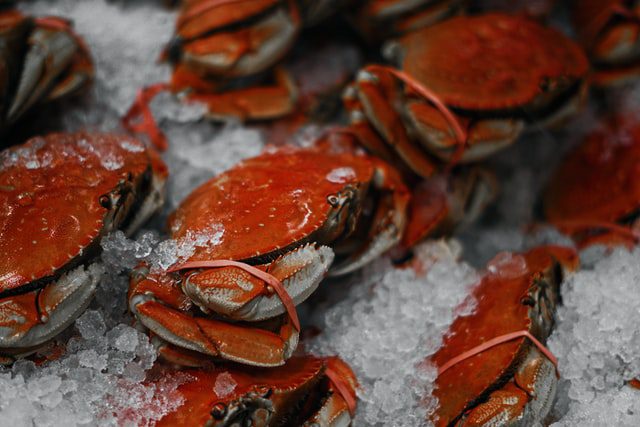It’s rare to hear about cross-party consensus in UK politics, but yesterday [Monday 06 December] this happened in the House of Lords at Westminster and for a most unusual reason – crabs and lobsters.
The ten-legged crustaceans were debated late into the night, with Lords agreeing to support a government amendment declaring that animals like crabs, lobsters and prawns experience feelings such as pain and should be included in the Animal Welfare (Sentience) Bill. The amendment was laid on behalf of the government by Conservative peer Lord Benyon, and sponsored by opposition Labour peer Baroness Hayman of Ullock and Liberal Democrat peer Baroness Bakewell of Hardington Mandeville. It is believed to be only the second time this has happened in recent history.
Following Brexit, the UK government launched an Action Plan for Animal Welfare, including the Animal Welfare (Sentience) Bill which is currently making its way through UK Parliament. After the debate in the House of Lords it will now include decapod crustaceans (animals like crabs, lobsters and prawns) and cephalopod molluscs (animals like octopus and squid). If passed into law their welfare would have to be considered in any future policy decision-making. It would also pave the way for their inclusion into other UK animal welfare legislation such as the Animal Welfare Act.
“It’s rare to hear about cross-party consensus in UK politics, but yesterday this happened in Westminster”
The UK will be joining countries who already have protections for these animals in law, including Norway, Austria, Switzerland, New Zealand and various Australian territories and cities in Germany, Netherlands and Italy. The issue is particularly relevant for the UK, where approximately 420 million crabs, lobsters and langoustines are landed in UK ports by UK vessels each year.
On the 19th November 2021 an independent report was released that reviewed the evidence for sentience in decapod crustaceans and cephalopod molluscs. The report was commissioned by the Department for Environment, Food and Rural Affairs (Defra). The review, led by Dr Jonathan Birch of the London School of Economics (LSE), analysed over 300 scientific studies over several months. The team concluded that there is strong scientific evidence of sentience in decapod crustaceans and cephalopod molluscs, and recommends that they should be included in animal protection legislation. The government amendment that was supported by the House of Lords, was drafted directly in response to the findings and recommendations of this report.
Crustacean Compassion, the leading group campaigning for the humane treatment of animals like crabs and lobsters, has welcomed the news. They have shown this issue to be of public concern and to have significant expert support. Their petition calling for decapod crustaceans to be protected in law has been signed by almost 60,000 people to date, and their open letter was signed by scientists, veterinary organisations and public figures, including the British Veterinary Association, RSCPA and wildlife broadcaster Michaela Strachan.
Claire Howard of Crustacean Compassion said: “There is no longer debate about whether or not animals like crabs, lobsters and prawns can feel pain. The scientific review published by London School of Economics has shown the evidence is clear and compelling. In the UK this has now led to government recognition of their sentience for the first time. It would be great to see this inspire legal protection for these animals in countries around the world.”
Juliette Booker of Crustacean Compassion said: “It is fantastic to see this cross-party support resulting in crabs, lobsters and prawns being included in the UK Sentience Bill. The peers have reviewed the extensive scientific evidence in the LSE report and taken the findings seriously. Knowing that these animals can feel pain, we now need to ensure that inhumane practices such as boiling them alive are stopped.”
Help keep news FREE for our readers
Supporting your local community newspaper/online news outlet is crucial now more than ever. If you believe in independent journalism, then consider making a valuable contribution by making a one-time or monthly donation. We operate in rural areas where providing unbiased news can be challenging. Read More About Supporting The West Wales Chronicle


























